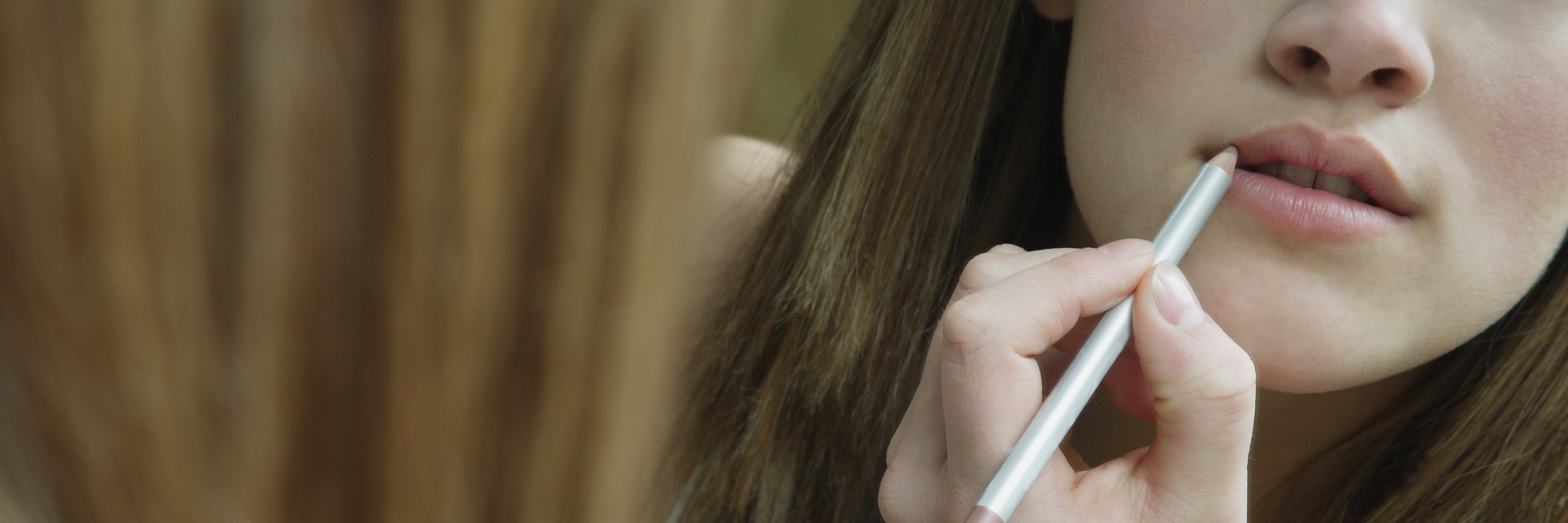Four-inch heels, power suits, cocktail dresses, regular hair and nail maintenance and appropriate make-up. That was me in the professional world. Client meetings, networking events and charity functions. They all require the professional look.
I already looked younger than I was, so I used my wardrobe to prove my legitimacy. I actually met with a prospective client who assumed I was a summer intern. My hair was pulled back, I wore a blazer over my new J. Crew dress and had a stack of papers prepared for our meeting. Yet he questioned my abilities. I looked at him, very seriously. I told him I had been in banking for 10 years and was the youngest employee at my company to become a vice president. It didn’t take long in that meeting for him to realize that I knew what I was talking about. We did many deals together over the years.
I’ll be honest, I’m a serious girly-girl. I loved playing dress-up as a kid in my grandmother’s costume jewelry and makeup. I got involved in community theater at a young age, which only fed my love of dressing up.
Then I got sidelined with chronic migraines. Soon, my clients started asking if I was OK. Or commented that I looked nice but seemed to be in pain due to my pale pallor. I slowly revealed to my clients what I was going through and they were very sympathetic… as long as I got the work done. I used makeup to perk up my face. To put on the appearance of being OK. Some people could tell under the makeup and business suit that I was not OK, while I could easily fool others.
Over the course of two years, the pain overtook my body and I couldn’t work anymore. Heartbreaking. I vowed to not stay at home in the same clothes for days. I’d shower and wear makeup every day. I wanted my daily routine to stay as close as it could to what my normal life had been. (It’s a good aspiration, but I don’t beat myself up when it doesn’t happen!)
As I searched for answers, I began to notice that doctors reacted differently to me depending on my attire. I wouldn’t show up in a full business suit, but if my jeans and T-shirt were clean, my hair blow-dried and an appropriate amount of makeup on, I got more attention. If I came in sweatpants and a hoodie with no makeup on, I found I wasn’t taken as seriously. Or I looked like I was seeking drugs. I was confused. Looking “normal” got their attention, but arriving in shambles due to the intense pain set off alarm bells. Shouldn’t they see the “real” me?
One time I went into the ER looking like death warmed over. I knew exactly what drugs I needed that would help me to get out of this bad migraine attack. The doctor did not take me seriously. I was scolded on the use of opioids, a medication prescribed by my doctor that I had never misused. No relief was offered except 800 mg of Tylenol. Apparently, I looked like I was seeking drugs and was quickly dismissed.
***
I wrote the section above years ago during my first inpatient ketamine stay. It was a planned five-day visit. I remember packing my makeup bag. My reasons? Vanity. Sanity. Normalcy. To be taken seriously. At this point, my docs knew and trusted me, but the four other departments that were involved in my care have never met me before. If I didn’t have a polished look would they take me seriously?
Six hospitalizations later and I wash my face every morning and slap on the most basic makeup so that I can feel better about myself. I’m lucky if I get one shower while I’m there. Thanks, dry shampoo! I’m not as vain as I used to be due to the pure energy it takes just to look presentable either at home or in the hospital. I’m more comfortable now with my looks and body in general, which translates into interactions with medical professionals. At the hospital, the pain team knows me, I’ve had the same nurses multiple times and I have a strong relationship with my doctors.
It’s horrible that we have to be strategic about our appearances to feel like we’ll be taken seriously. This goes hand-in-hand with the stigma I try so hard to work against and this occurs within the medical community, who still don’t understand migraine disease.
How do your doctors react to you and do you feel it is related to your appearance rather than the stack of evidence and questions you have?
This blog was originally published on Golden Graine.
We want to hear your story. Become a Mighty contributor here.
Thinkstock photo by Design Pics

